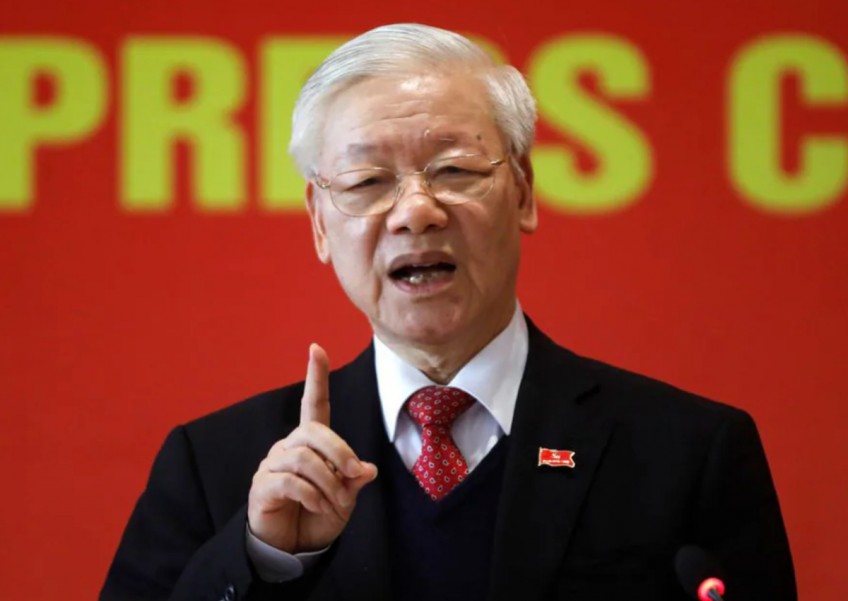Vietnam to extend anti-graft drive as police reveal real estate fraud worth 3% of GDP


HANOI — Vietnam's top leader vowed to extend "for the long-term" an anti-corruption campaign that has had a chilling effect on the economy, after police revealed financial scandals in the real estate sector worth more than three per cent of gross domestic product.
The campaign against graft has been under way since 2016, but gained momentum last year after authorities in the Communist-ruled country cracked down on several high-profile frauds and corruption cases involving top corporate executives and high-ranking state officials.
"We need to conduct the anti-corruption fight faster in a more efficient manner," Communist Party's General Secretary Nguyen Phu Trong said on Wednesday, state media reported late that day.
"We won't stop here, but will continue for the long term," he said.
Trong's remarks came after the police announced the outcome of months-long investigations into two financial scandals, revealing for the first time the scale of the fraud, worth a combined US$12.8 billion (S$17.14 billion), or 3.2 per cent of the economy.
In the biggest of the two scandals, Truong My Lan, chairwoman of real estate developer Van Thinh Phat Holdings Group, and her accomplices embezzled 304 trillion dong (S$16.78 billion) from Saigon Joint Stock Commercial Bank, according to the investigation, the outcome of which was published on Sunday (Nov 19).
The case had been widely publicised when My Lan was arrested in October last year and led to a crisis in the real estate sector and the market for corporate bonds, which she has been accused of issuing illegally in large amounts.
The intensification of the anti-graft campaign, known as "blazing furnace" and reminiscent of campaigns in neighbouring China, has been seen as compounding the negative economic impact of that scandal, paralysing many routine transactions as officials fear being entangled in investigations.
The huge scale of the fraud had not been known until this week and has raised concern among financial experts about the impact on the banking sector.
J.P. Morgan Research said the size of the scandal could lead to stricter enforcement of financial rules, which in turn would cause higher costs for lenders, while potentially slowing growth.
In September, the Asian Development Bank warned of potential spillover into banking from the crisis in the real estate sector as the ratio of non-performing loans increased.
On Wednesday, a rating agency co-owned by Moody's said Vietnam's listed property developers faced increased pressure to pay their large debts as profits plunged and their cash reserves dropped to the lowest levels in more than five years.
In an unrelated scandal, police late on Wednesday accused the chairman of property developer Tan Hoang Minh Group of illegally raising 8.6 trillion dong from issuing bonds to 6,600 investors, also revealing for the first time the scale of the scandal that had been previously reported.
ALSO READ: Indonesia ex-agriculture minister named as graft suspect